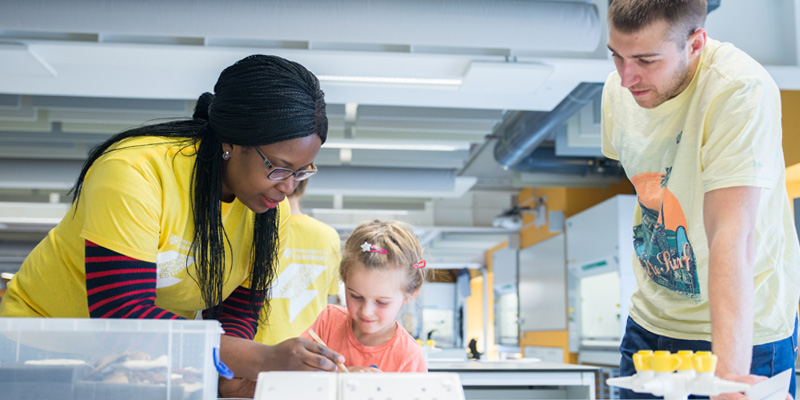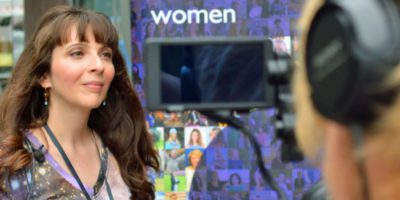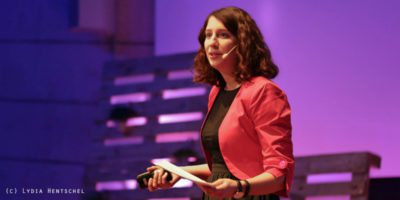Chioma Vivian Ngonadi is a Gates Scholar and Ph.D. student in the Department of Archaeology at the University of Cambridge. Her research interests include early agricultural communities in Lejja, South Eastern Nigeria.
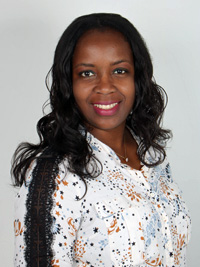
Chioma was one of the speakers at Soapbox London, which took place on 26th May 2018 on London’s Southbank. The title of her talk was: “A Human Fingerprint on an Ironworking Landscape: Lejja, South Eastern Nigeria c. 3,000 B.P.”
Uncovering my love of archaeology – so much to learn and see
I was born and raised in Anambra State, South Eastern Nigeria and earned a first class honour’s degree in archaeology from the University of Nigeria in Nsukka. In 2010, I completed my master’s degree in archaeology from the University of Dar es Salaam in Tanzania, which was funded by SIDA / SAREC (the Swedish International Development Cooperation Agency) through the African Archaeology Network.
My master’s research was on a comparative study of two pottery traditions from sites in Rufiji, coastal Tanzania. Before taking up my Ph.D. position at the University of Cambridge, I worked as a lecturer for three years at the Department of Archaeology, University of Nigeria, Nsukka.
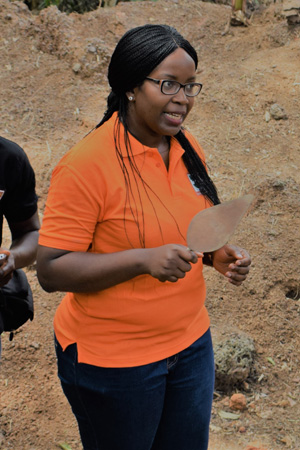
At Cambridge, my Ph.D. research seeks to examine the relationship between agriculture and iron working in the deeper past in Lejja, South Eastern, Nigeria. The primary aim of the study is to investigate how West African iron smelting in this area sustained life and integrated with the quest for food between c. 2,000 and 3,000 B.P.
I first got interested in archaeology while I was in secondary school and this mainly influenced the choice of my undergraduate degree. I was fascinated by documentaries on the Discovery Channel and intrigued by history books, particularly those about ancient history.
My love for archaeology and history was further enhanced by my dad, who had a library of books on subjects ranging from philosophy to law and history. By the age of 15, I had read dozens of books about the lives of our ancestors. There was so much for me to learn and see – it was so stimulating and exciting. All these inspired me to consider archaeology as a career path.
My role
My day to day activities entail working from the laboratory analysing seeds, pottery, charcoal as well as attending archaeological seminars, professional development workshops and training in Cambridge, London and other places. I do this alongside taking care of my young family.
I have two wonderful and supportive supervisors – Professor Martin Jones and Dr. Matthew Davies, who I usually meet with to discuss my ideas and findings.
Why looking back helps us learn about the future
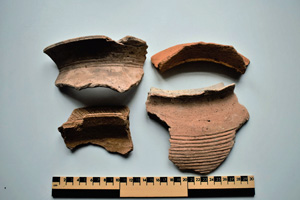
Lessons learned from the past can also influence the social, political and environmental action we take today.
Soapbox Science – a different kind out outreach event
I heard about Soapbox Science through my department at Cambridge. While reading up about the event on the Internet I was fascinated when I realised that I would be standing on a box in the streets and explain my research to the public! It was entirely different from all the other outreach events that I have participated in, and I was so happy to do something different.
A few days later, I applied for the Soapbox Science event in London, and I was excited about being selected as one of the 12 scientists from a pool of 85 applicants. For me, Soapbox Science is an excellent idea because it brings exciting science, carried out by women, to the public.
It provided a platform to interact and communicate directly with people about science and the research that I do, introducing the public to something they have perhaps never thought – the archaeology of South Eastern Nigeria in the deeper past.
Intrigued by the way our ancestors lived
At the Soapbox Science event, I talked about my Ph.D. research on Early Agricultural Communities in Lejja, South Eastern Nigeria. I discussed the various analytical techniques scientist apply to archaeological artefacts to learn about how the prehistoric people lived in the past.
I spoke about their day to day activities regarding their subsistence practices (i.e. what they eat, what crops they farm and why), technology, belief systems and more. I was excited to be able to share this as I have always found that the public is intrigued by how our ancestors lived. The response was wonderful.
So proud of my student Chioma Ngonadi #CambridgeArchaeology doing her bit for women in Science #SoapboxScience pic.twitter.com/qXcrnXRtE1
— Martin Jones (@MartinJ29061951) May 26, 2018
Richness of thought

Diverse perspectives are incredibly important in science (and life!). Bringing together people from a variety of different backgrounds to discuss particular issues or subjects brings a richness or thought and also the potential of developing ideas, which can help you attack problems in a way you have perhaps never considered.
Diversity is also about creating equal opportunities for everyone, and we can all see signs of progress through initiatives like Athena SWAN, but the statistics make it equally clear that there’s still a long way to go. Women and girls represent two-thirds of the world’s illiterate population. Just imagine all those brilliant minds out there which need to be given an opportunity to blossom – there is so much work to be done.
Coming up
Currently, I am working toward finishing up my Ph.D., and when I complete it I would like to go back to Nigeria and use the skills and expertise that I have gained to develop and train the next generation of African archaeologists.
I want to give them the benefit of the opportunities I have had. Also, I am concerned about the dwindling state of archaeology in Nigeria as more attention is given to the oil and gas exploration and tourism development. Archaeology needs to be preserved and protected as these developments occur, and indeed archaeology has much to contribute to sustainable development and education across Nigeria. I wish to be at the forefront of these developments.
https://www.arch.cam.ac.uk/directory/cvn24
https://twitter.com/ucamarchaeology
https://twitter.com/Gates_Cambridge

